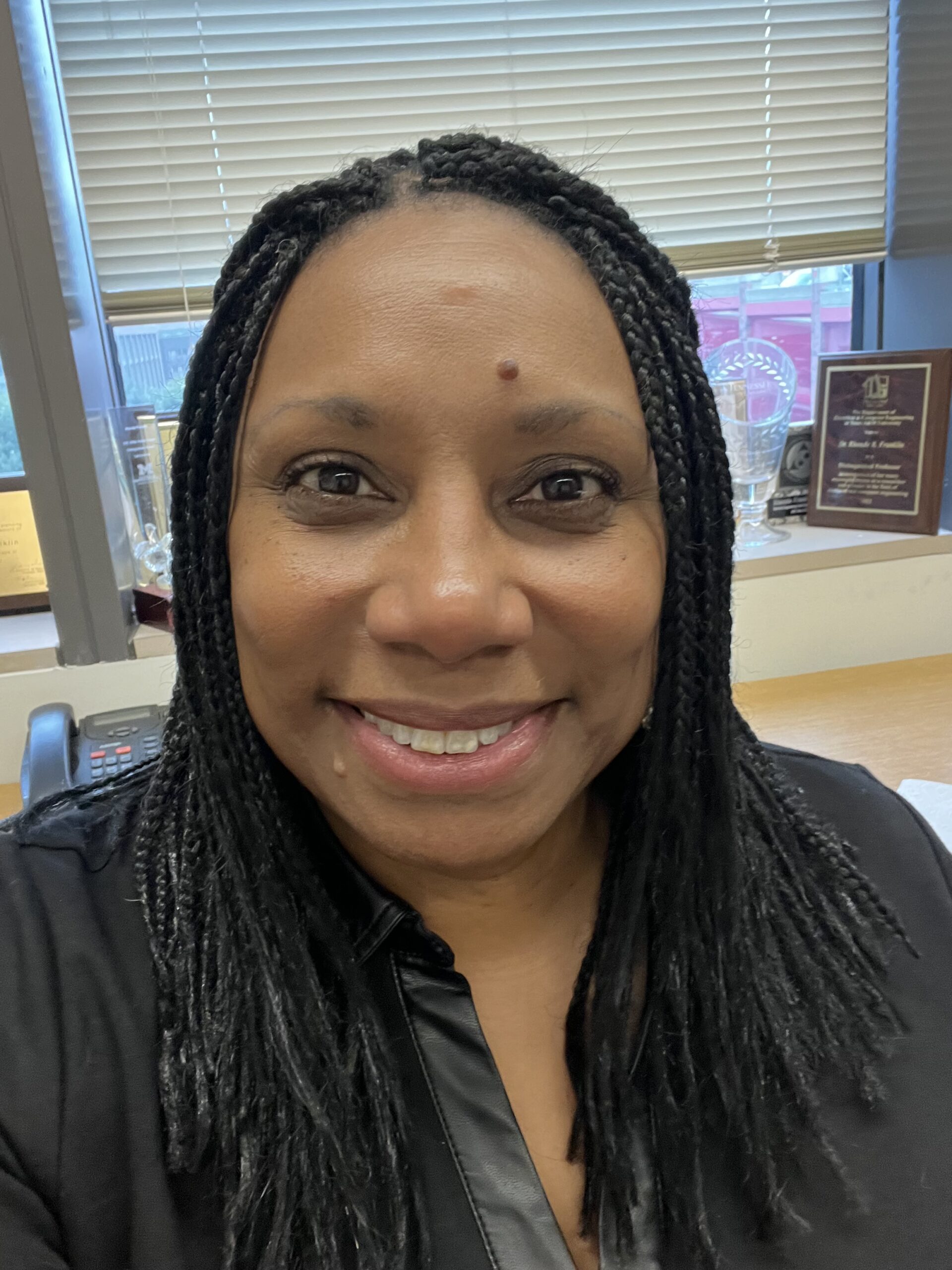Distinguished Lecture | RADLAB Seminar | Women in Computing | Alumni | ECE Alumni Award Seminar
Sensing and Interconnect Technologies for Diverse Applications- Communications, Ecology, and Nanomedicine
This event is free and open to the publicAdd to Google Calendar

Rhonda Franklin is the recipient of an ECE Distinguished Educator award.
Over the past two decades, our vision for wireless and internet systems has transformed, propelling advancements in communications and computing. The concept of a singular device integrating computing, communications, imaging, sensing, and information sharing has given rise to the Internet of Things and Smart Connected Cities. This evolution, from 1G to 5G and the emerging 6G communications, has not only enhanced human-to-human and human-to-computer communications but also spurred unprecedented growth in non-traditional applications such as healthcare, environmental monitoring, precision agriculture, and autonomous vehicles.
Integral to these breakthroughs is the concurrent progress in hardware and software development. Innovations in high-speed circuitry, packaging, and integration, influenced by microelectronics, nanotechnology, and MEMS technology, have played a crucial role in hardware advancements. This presentation will delve into the enabling technologies driving communication systems and biosensing applications forward. Topics include wired and wireless interconnect technology, utilizing metamaterial antenna concepts and nanotechnology for 5G applications. The discussion extends to sensing technologies applicable to environmental monitoring in ecology research.
The final segment is tailored for students aspiring to pursue careers in research within industry or academia. Career development strategies will be explored, showcasing the impactful roles Michigan ECE graduates can play in post-graduation career growth. This comprehensive overview underscores the dynamic interplay between technological advancements and their multifaceted applications, providing insights into the evolving landscape of communication systems and biosensing.
Bio
Rhonda R. Franklin, the McKnight Presidential Professor of Electrical Engineering and Abbott Professor of Innovative Education at the University of Minnesota (UMN), is a distinguished researcher specializing in high-frequency circuit and antenna design, integration/packaging, and materials characterization. With 161 co-authored articles, six book chapters, and 12 patents/application/licenses, her work spans high-speed communications, biomedicine/nanomedicine, and ecology applications. Recognized with the NSF Presidential Early Career Award, IEEE MGA Diversity & Inclusion Award, and IEEE N. Walter Cox Service Award, she also received UMN College of Science and Engineering’s George W. Taylor Award for Distinguished Service and the University of Michigan Distinguished Educator Alumni Award. Franklin actively contributes to microwave engineering education, serving as an MTT-S Distinguished Microwave Instructor, and advocates for diversity through initiatives like Project Connect and the IEM Inspire program. As the Director of the new NSF Inclusive Hub, M-FORCE, she be forming a community to mentors students, particularly from underrepresented groups, focusing on research careers. Having supervised 27 graduate students (M.S. and Ph.D.) and guided 34 undergraduate research projects, Franklin’s impact extends across research, leadership, awards, and a dedicated commitment to fostering diversity in academia and the professional realm.
 MENU
MENU 
